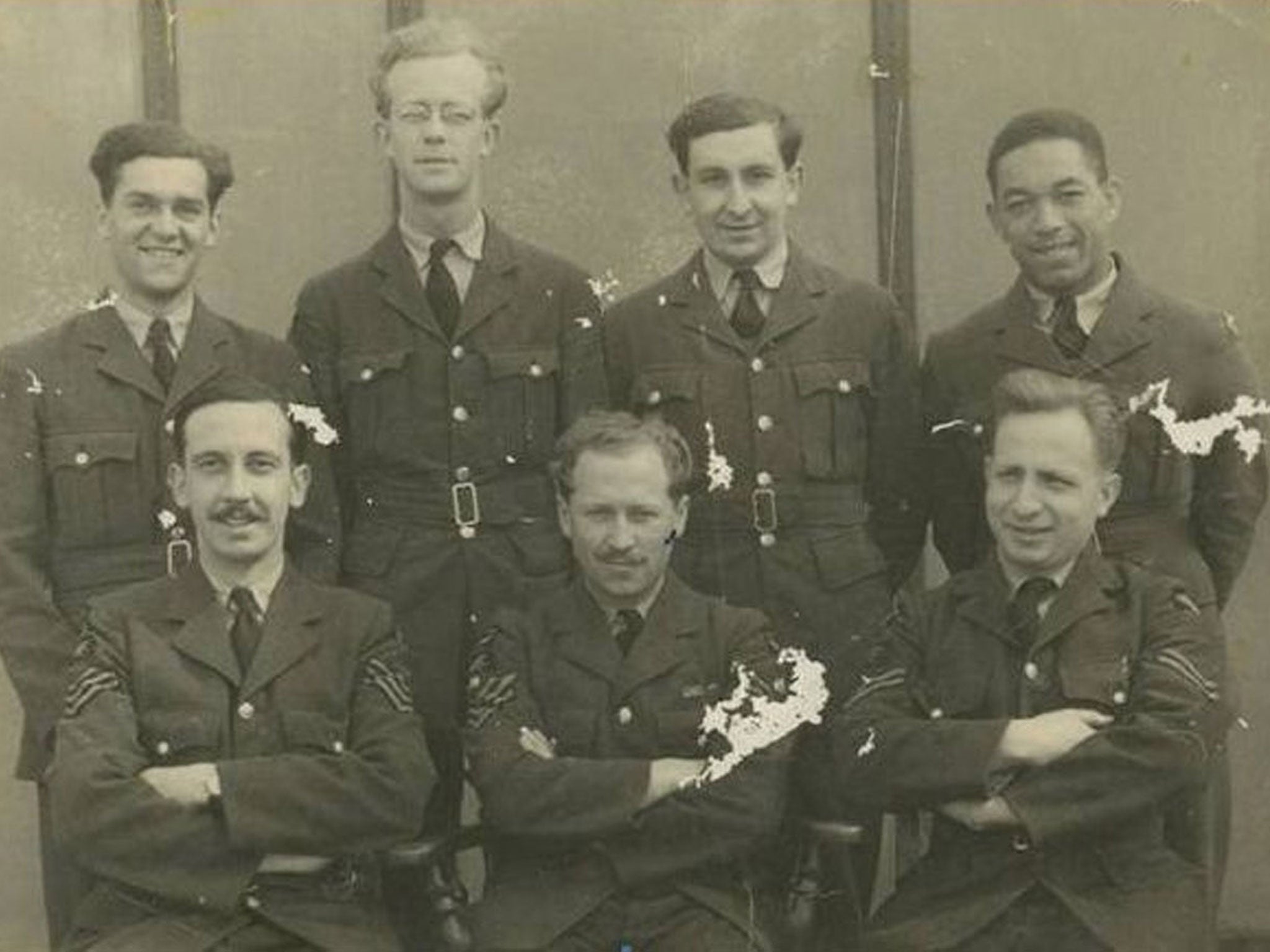‘Uncle Hunky’, last surviving black Bermudian to fight with the RAF in WWII, dies at age of 90
Pilot formed ‘historic link’ to Commonwealth volunteers, often seen as airbrushed from history

Philip Lamb left his home in Bermuda in 1943 to answer the call of King and country, joining the RAF at a time when German V1 and V2 rockets were raining down on Britain. He was injured in an air-raid and, after recovering, undertook missions in Europe searching for unexploded mines.
The last of the black Bermudians who served in the RAF in the Second World War has now died at the age of 90, ending what friends and family said was a historic link with a very special time.
A number of men and women from the Caribbean were among volunteers from across the British Empire who came to the UK, as well as thousands who joined up abroad. There was a feeling afterwards that their contributions and sacrifices were subsequently airbrushed out of popular histories, although attempts have been made to rectify this in recent years.
Mr Lamb was determined to play his part, joining the Bermuda Militia Artillery at the age of 17 in 1940. After three years of service he was selected for the RAF and shipped out to England after training in Canada. “When they asked for volunteers, I believe I was the first who put my name down, and luckily I was accepted; at that time I was like a peacock, I was proud then. We wanted to go and fight” he recalled later.
He was staggered by what he found himself in the middle of. “It was rough, it was something else. Bombs were flying everywhere and I asked myself 'momma, why did I come over here?' You can't imagine, Coventry and London were bombed flat - they had taken a beating. The Germans were using those V1s and they were sending them over from the coast of France. When the fuel ran out they would dip and come down - bomp - and somebody had to die.”
Leading Aircraftsman Lamb, a member of ground crew, came close to death himself when his airfield was bombed. “It was one of the last raids we had in England, I happened to be in a camouflaged building and the Germans were using dive-bombers. They never touched the target they wanted to hit, but we were near the exits and that's when I got myself hurt.”
He ended up in hospital with a German prisoner-of-war next to him. “I couldn't speak German, he was speaking a little broken English. I was a little intimidated but neither of us could move.”
Mr Lamb returned to Bermuda in 1947, bringing back with him the grief of losing friends.
“That loss of other young men was one of the toughest things to deal with. I had a buddy from Canada, he was 23, 24 years old. I got the news that Keith was shot down and killed, I took it hard, he was like a brother.”
Bermuda Historical Society's Andrew Bermingham, a friend of Mr Lamb's, said the former airman was from the island's “greatest generation, who went off to fight the fascists because it was the right thing to do. To borrow something General Patton said about that war: 'We should not mourn that such men died, we should thank God that such men lived.'”
Two years ago, Mr Lamb's military record was finally recognised when the RAF presented him with a medal for his efforts during the war.
Lt-Col Eddie Lamb, a distant relative of Mr Lamb and a former commanding officer of the Bermuda Regiment, described the man he knew as “Uncle Hunky” as a hero, icon and inspiration. “Despite his advanced years, Uncle Hunky was in very good spirits and a picture of health when I last saw him,” Lt-Col Lamb told Bermuda's Royal Gazette newspaper.
Replica Spitfire honours cadets
This full-size replica Spitfire is a memorial to pilots killed while training in Scotland during the Second World War. It was unveiled by Jackie “Dinger” Bell, a 100-year-old former aircraft mechanic, in a public garden at Grangemouth, Stirlingshire, near the site of a former RAF base.
Pilots from across the world were based at RAF Grangemouth during the war and 71 were killed in training flights.
Cadets from 1333 (Grangemouth Spitfire) Squadron Air Training Corps came up with the idea for the memorial and helped to raise the £100,000 needed to build it.
Join our commenting forum
Join thought-provoking conversations, follow other Independent readers and see their replies
Comments